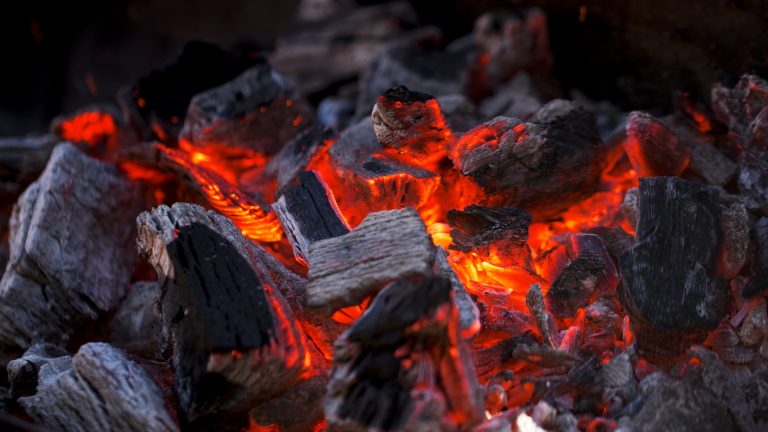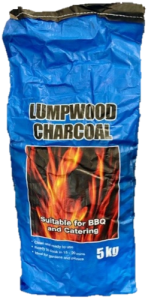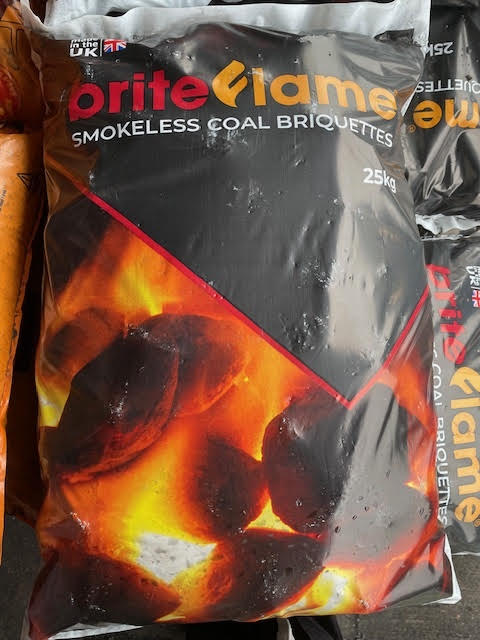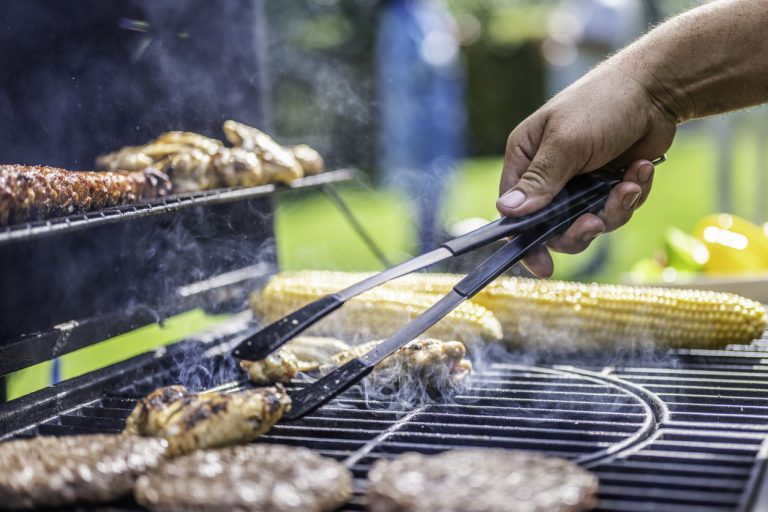Lumpwood Charcoal vs BBQ Briquettes
With summer just around the corner, fans of al fresco cooking and dining will be looking forward to enjoying a long season of barbecues with friends and family.
When you’re considering which fuel to use on your barbecue, two common choices are lumpwood charcoal and BBQ briquettes. You may be thinking that there’s not much difference between the two, but that’s not actually the case.
In this article, we’re going to explain how these fuels differ, along with the relative merits of each, to help you find the perfect fuel for your next barbecue.

What is lumpwood charcoal?

Traditionally the preferred choice of professional chefs, lumpwood charcoal is produced naturally through the carbonisation of hardwood. That makes it a 100% natural product, which also means that it comes in irregularly shaped pieces.
Lumpwood charcoal attributes
Advantages
- Natural charcoal burns at a high heat, which makes it ideal for cooking barbecue favourites like steak, because it sears the meat for a richer flavour.
- Being a 100% natural product, you’re guaranteed a clean burn with only small levels of ash residue.
- Lumpwood charcoal is the best way of achieving the smoky flavour beloved by many barbecue fans.
Disadvantages
- Because lumpwood charcoal comes in a variety of shapes and sizes, it can be difficult to maintain an even or consistent burn.
- Charcoal burns relatively quickly, so you may have to refuel more regularly than with briquettes.
What are BBQ briquettes?

Unlike lumpwood charcoal, BBQ briquettes are manmade. They are usually made by compressing recycled materials – such as sawdust and coal dust – to make uniformly shaped pieces, often with a hole through the middle to enable the free flow of air. Binders and ignition aids may be included, but these can still be made out of natural materials to maintain a clean burn.
BBQ briquettes attributes
Advantages
- The uniform shape of briquettes makes it easier to control the temperature, making it a good choice for inexperienced barbecue chefs.
- Briquettes also burn for longer than lumpwood charcoal, so you don’t have to spend as much time topping up your fuel.
- Briquettes are cheaper than lumpwood charcoal, so are the more cost-effective choice, especially if you’re planning on having lots of barbecues over the summer.
Disadvantages
- Briquettes don’t impart the smoky flavour of natural charcoal – in fact, some poor-quality briquettes may even leave a slight chemical taste.
- Briquettes are often slower to light and get up to the required temperature than lumpwood charcoal.
Which BBQ fuel should you choose this spring?

If you’re new to cooking on a barbecue, you may be better off using briquettes, because you’ll find it a lot easier to control the heat and spend less time worrying about when you need to pop more fuel onto the fire. As you get more experienced, you may find you become better able to manage the greater effort that cooking with charcoal requires.

Here at KG Smith & Son, we’re leading suppliers of a wide range of BBQ fuels, including lumpwood charcoal, BBQ coal briquettes and charcoal briquettes, all of which are available for nationwide delivery.
If you’re close to our Northampton depot, we also have BBQ gas bottles available for collection or local delivery – read more about this option in our previous article.
Get in touch to find out more or place your order for barbecue fuel online now.

